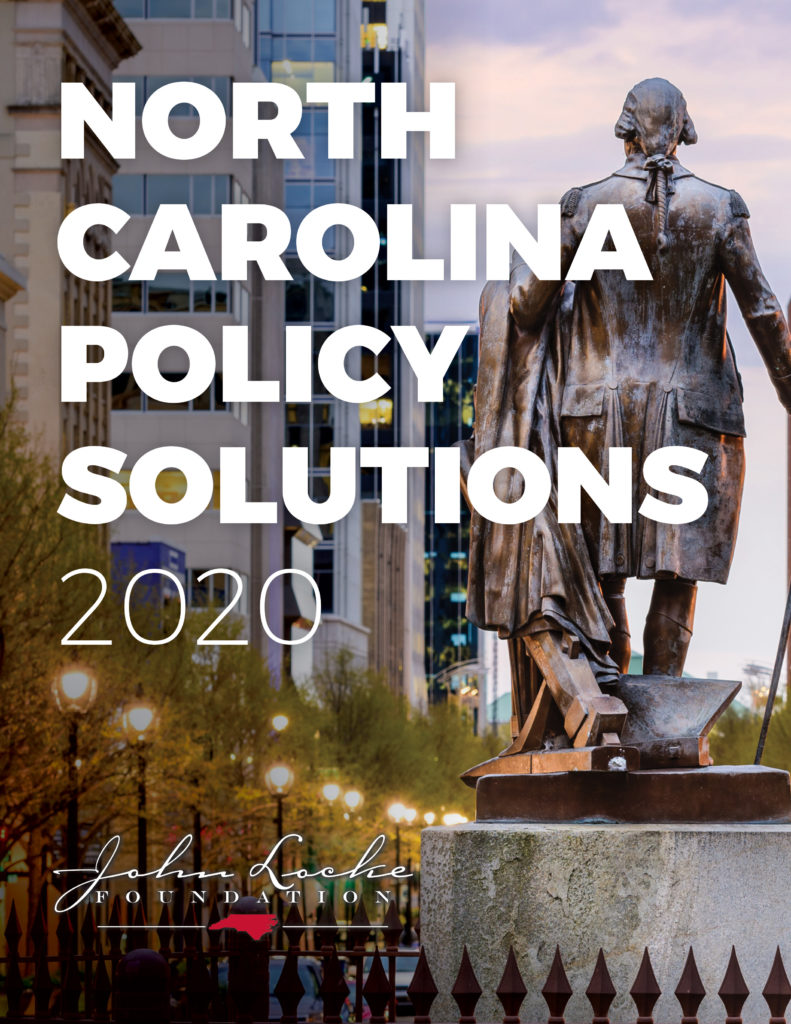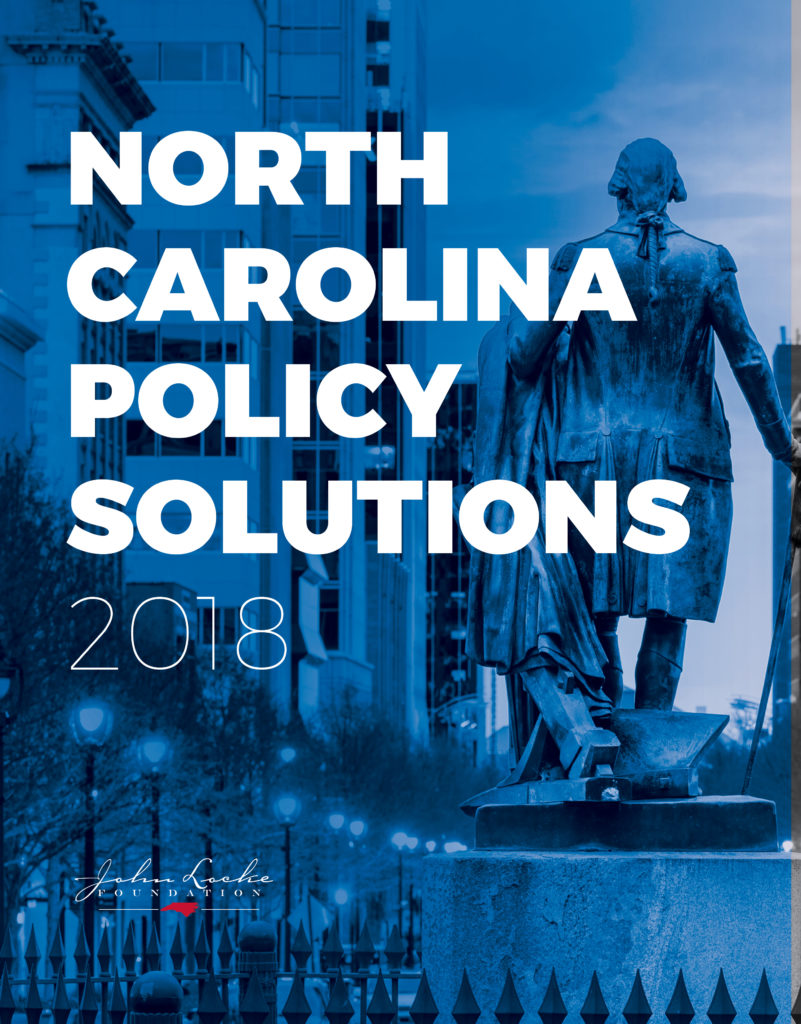Agenda 2010
A Candidate’s Guide to Key Issues in North Carolina Public Policy
Introduction
As we enter the 2010 campaign season, candidates for public office in North Carolina are faced with the daunting and pos- sibly overwhelming task of developing informed positions on dozens of public policy issues. Agenda 2010 provides a concise and easily digestible public policy guide for candidates for state and local offices across the state. The reports offered here are part of an ongoing series begun 14 years ago and published every two years by the John Locke Foundation.
In 1946 Henry Hazlitt wrote Economics in One Lesson, his now classic and timeless introduction to economics and economic policy. In writing the introduction to the 50th Anniversary Edition in 1996 (three years after Hazlitt’s death), Steve Forbes noted that “every tenet of the new economics that Hazlitt dispels continues today to rear its head in one form or another.” Comparing the topics and issues covered in this year’s Agenda to those covered in our previous guides make it quite clear that the same could be said for the actions of North Carolina’s state government. Most of the same topics that were covered ten years ago in 2000, or even in 1996, when our first Agenda was published, “continue to rear their ugly heads.” Concerns about misplaced spending priorities, high and increasing overall levels of spending, and a regulatory and tax burden that punishes productive activities are continuing problems that plague North Carolina’s citizens and economy. Education finance and performance, Medicaid, and economic development policy all continue to cry out for reform. Unfortunately, these issues and too many others seem destined to be a part of our Agenda concerns for years to come.
There are, however, several new issues for lawmakers to contend with immediately, which are reflected by four new topics in Agenda 2010. These new sections highlight how changing events can shift the focus of policymakers in a matter of months or even weeks. New for Agenda 2010 are sections on “State Debt,” which has been steadily increasing; “Eminent Domain,” which has moved to the forefront of state issues as U.S. Constitutional protection of private property rights were gutted by the U.S. Supreme Court’s decision in Kelo vs. City of New London; “Forced Annexation,” brought to legislators’ attention by a grassroots backlash against local governments that forcibly annex people living in unincorporated areas; and “ABC Re- form,” which became an issue facing the legislature as a result of recent scandals.
What unifies the John Locke Foundation’s analysis of all these issues is our fundamental commitment to free markets, private property rights, individual liberty, and limited government. The overarching goal of our recommendations is to advance these ideals. In doing so the citizens of North Carolina will not only be freer, but also more prosperous.
Agenda 2010 is a joint effort of the research staff at the John Locke Foundation. We would like to thank research interns Jacob Burgdorf, Ian Davis, Steven Holden, Cameron Lambe, Kamen Nikolaev, Sara Riggins, and Amanda Vuke for all their help. We would also like to thank Jay Schalin of the John William Pope Center for Higher Education Policy for his entry on “Higher Education.”
Each of these entries is meant to be an introduction. For readers wanting more detailed analyses of the topics here, we offer several additional resources in a reference section at the end of this guide.
Roy Cordato
Vice President for Research
John Locke Foundation




